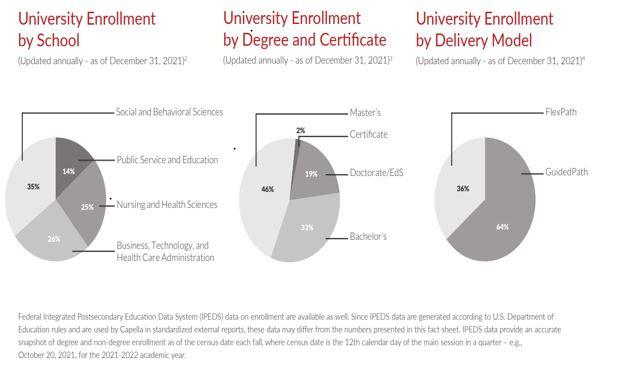
5 minute read
Communication Etiquette with Using Technologies in Personal, Academic, and Professional Environments
from The Constellation Newsletter of Capella University's School of Bus, Tech and Healthcare Admin
by SoBTH
By: Breanna Gorski, M S (Capella learner-contributor)
Have you ever wondered when the negatives of technology outweigh the benefits? It’s when we misuse technology, damaging relationships and productivity. While technology has the potential to connect us in ways past generations couldn’t even dream of, it also allows us to give in to the human propensity for lack of impulse control (Martin, 2013) That is, technology makes it easier for us to act out of emotion before we have a chance to think something through rationally.
Advertisement
Email and text are great examples of how impulse control issues can lead to problems
When someone sends emails or text filled with raw emotions such as anger and frustration, it can ultimately lead to disastrous results Firing off angry messages without taking the time to cool down and write a thought-out response can create anger on both sides, and also obscures the valid points that they might be making, hiding them in a veil of explanation points and angry bolded letters (Martin, 2013) As one psychologist puts it, “Once you send a hostile email, the exchange stops being about your concern and starts being about your nasty email” (Martin, 2013).
Most of us know these things, yet our human emotions sometimes get the better of us How do we stop it? Be more mindful Read on for some helpful reminders that you probably know, but don’t always practice
While many interactions with our fellow humans are joyful, there are also interactions that can leave us feeling sad, depressed, angry, or rejected When perceived rejection occurs, whether through a job, school, or personal relationship, a person might feel upset and disappointed, which can lead to venting to a colleague or on social media There is nothing wrong with raw feelings; it is how those feelings are expressed that can have painful consequences Venting frustration too quickly denies you the chance to calm down or gain perspective and can often make matters worse Remember, whatever is said in reality and in the cyber world can never be taken back
Trust can often be a casualty of hurried words
Once hurtful words are exchanged, whether it is through the web or in person, it can be hard to regain the trust and respect in the relationship In a professional environment, it can result in alienating colleagues, damage to teamwork, or even someone’s termination
Even if you have a strong sense of sadness and anger in response to a written message, practice separation to process the raw emotions Afterwards, you can better look at the communication and better see if the true message warranted your strong emotions
Remember that while a quick and angry response will express your feelings at the moment, it is probably not doing so in the most effective way (Martin, 2013) Furthermore, venting that anger may prevent you from getting your point across and actually damage your relationship or reputation (2013) Here are a few quick reminders when you receive a message that upsets you:
If possible, don’t even send a response; instead, talk to the sender in person If you must send a reply, take time to cool down first
Continued on page 11
Analytics: How Not to Get Lost in Space
Two of my college experiences may be similar to yours First, inevitably the article I was looking for in the library was checked out or missing (torn from the publication) Occasionally, I found the journal edition I needed on a cart waiting to be shelved Frustration! The second experience was statistics class While “Lost in Space” was a television series in the 1960s, it adequately described my state of mind during and after the class While online research has solved a lot of my library issues, software and YouTube have helped my statistical and analytical efforts
The good news for all of us is that statistics and analytics have become user friendly.
Excel celebrated its 30th birthday a few years back Today, Excel does the heavy lifting With three clicks, I can scan a column or two of data and create a line, bar, or pie chart as well as calculate central tendency, standard deviation, and several additional data reference points Amazing! I can do a regression analysis (comparing two variables to see if they are related) with a couple of clicks as well
Pie charts have always been easy to interpret for all of us A pie chart is based on 100% of something, i e total number of female students enrolled in CU in October 2021, like the pie charts below (Capella University, 2022) Remember, you can create pie charts from one column of data in an Excel file with two clicks!

Using the net, I can search “how to do a control chart” and get a 2-minute YouTube video to walk me through the steps I can also google “how to interpret a control chart” and get a short video that makes the complex very simple
We as faculty and students are asked to interpret data daily Most of us review our 401K performance on a quarterly basis; one common graph of our 401K tells us about performance over time The local paper provides us an overview of the analytic results of our elementary schools in terms of performance against the norm or average We have gotten used to seeing and interpreting data over time And we are good at doing so
by Dr Jama Bradley Continues on page 11
Once upon a time there was a family of beavers who lived in a creek outside a small town in Minnesota. The beavers were industrious, with even the young beavers always planning, organizing, scheduling, harvesting wood, and gnawing down trees for dam construction Each of these tasks required a specific skill set, and everyone performed the task he or she did best
Our unlikely hero, Rusty, a somewhat slight and young beaver, had learned to do all the different tasks, but since he was especially small only his sister, Honey, paid much attention to him Papa Beaver and Mama Beaver were not interested in this smallish member of their family beyond worrying about him and telling all his brothers and sisters to watch out for him Rusty’s siblings, including Tooth and Tail, were kind yet dismissive of him

Mama and Papa spent their time overseeing and controlling the colony activities Each of the two elder beavers knew a great deal about making dams and sustaining their colonies but they didn’t know everything There were so many aspects to the beaver body of crafts, that, so far, no single beaver was ever able to learn all the skills
One day in early spring the creek was moving fast due to unexpected ice melt Papa and Momma told most of the young beavers to shelter on a small bank near one of their several dams while Papa and Tail worked feverishly to reinforce the dam, they called home
The bank was a high place along the creek where the water passed slowly on most days As all the beavers sat safely watching the water rush past them, a sudden deluge like they’d never seen before pushed through, and several beavers, including Papa and Tail, were pushed far down the creek very quickly. The colony knew the creek ran downhill to a neighboring colony, and that while the missing beavers would eventually be safe, it would be many days before Tail and Papa, two of their most knowledgeable workers, would return This left the beaver colony short of expertise in several beaver crafts and a broken dam
Momma was concerned about how to proceed; their washed-out dams weren’t going to rebuild themselves, after all While she knew all the things that Papa did, she did not know how to do the deep cutting that Tail did nor how to make the engineering diagrams he created in the mud. In fact, as far as she was aware, no one else in the colony had these skills
But Honey was very aware of her families’ capabilities, and she had observed Rusty carefully acquiring all the colonies’ skills while the colony paid little attention to him. Rusty told Honey that he was not quite as good at any one skill as his brothers or father, but he knew how every craft should be done No matter what Papa, Tooth, and Tail said, just because Rusty was little didn’t mean he couldn’t make major contributions if given the opportunity
Continued on page 12



